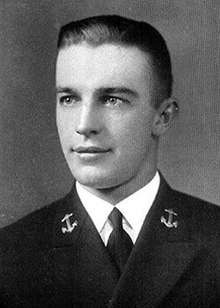Robert George Clements
Robert George Clements (1880 – 1947[1]) was a physician and a fellow of the Royal College of Surgeons from Belfast, Northern Ireland. He is suspected of the murder of his fourth wife, who died of morphine poisoning. His first three wives also predeceased him, raising suspicions that he murdered them as well.[2] Clements committed suicide by an overdose of morphine before he was caught by the police.[3]
Robert George Clements | |
|---|---|
 | |
| Born | 1880 |
| Died | 1947 (aged 66–67) |
| Cause of death | Suicide |
| Details | |
| Victims | 1-4 |
Span of crimes | 1920–1947 |
| Country | England |
Marriages and deaths
Clements married four times, three of his four wives were heiresses. His first wife, Edith (or Edyth) Annie Mercier, who was active in the Ulster Women’s Unionist Council[5] and the daughter of a wealthy Belfast grain merchant, Dufferin Flour and Meal Mills owner William Turpin Mercier,[6] died of "sleeping sickness" in 1920, aged 40. His second wife, Mary McCreary, was the daughter of an Irish industrialist based in Manchester;[6] her 1925 death was ascribed to endocarditis, at aged 25.
His third wife, Sarah Kathleen Burke (known as Kathleen),[7] died on 27 May 1939, which was ascribed to endocarditis, and was quickly cremated,[6][8] though the police had made an attempt to halt the cremation.[9] By all accounts, Clements' had genuine affection for Burke.[6]
His last wife, Amy Victoria "Vee" Barnett, (often written as Burnett)[7] was the daughter of one of Clements' few patients, Reginald W. G. Barnett, the wealthy managing director of the Liverpool Cartage Company, who died suddenly in January 1940, six months prior to his daughter's June nuptials.[10] She died on 27 May 1947, under suspicious circumstances, in Southport. The previous day, Clements had called in another doctor when his wife fell ill. She was taken to a nursing home where she died the next day.[11] Both Clements and the other doctor called in diagnosed myeloid leukemia, which was confirmed by a botched post-mortem carried out by another physician, James Houston, who, one week after her death, committed suicide in regret of his negligence.[12]
The circumstances of Burnett's death caused people at the time to question the deaths of Clement's first three wives. All, with the exception of the third, were wealthy women when he married them and were almost penniless at the time of their deaths. Clements signed the death certificates himself,[2] and although there were some suspicions voiced following the death of his third wife there were no opportunities to perform a post-mortem, due to her body having already been cremated.
When the police came to arrest Clements they found that he had committed suicide, via an overdose of morphine.[3]
A second autopsy was conducted by a Dr. Grace who deduced that she had died from morphine poisoning. This was confirmed by Dr J.B. Firth, Director of the Home Office Laboratory in Preston.[13] Clements is thought to have murdered Burnett in order to inherit her money.[14] When Houston found out that his post-mortem had missed the presence of morphine, he, too, committed suicide.[2][15][16]
See also
References
- One hundred years of medical murder, John Camp, 1982. Page 5
- Kinnell, HG (2000). "Serial homicide by doctors: Shipman in perspective". BMJ. 321: 1594–7. doi:10.1136/bmj.321.7276.1594. PMC 1119267. PMID 11124192.
- Briend, Bernadette (2 February 2000). "Trust me, I'm a doctor". Health Service Journal. Retrieved January 29, 2019.
- The collected works of Max Haines, Volume 4, Max Haines, 2000. Page 571
- Urquhart, Diane (2007). The Ladies of Londonderry: Women and Political Patronage. I.B.Tauris. p. 123. Retrieved 16 May 2019.
- Evans, Colin (2007). Killer Doctors. Penguin. p. 47. Retrieved 16 May 2019.
- Hayhurst, Alan (2012). Lancashire Murders. The History Press. p. 116. Retrieved 16 May 2019.
- The People's almanac presents the book of lists, David Wallechinsky, Irving Wallace, Amy Wallace, 1977. Page 70
- "Tried to Forestall cremation". Burnie, Tasmania, Australia: The Burnie Advocate. 3 June 1947. p. 1. Retrieved 16 May 2019.
- Wright, Geoff (2008). Foul Deeds & Suspicious Deaths Around Southport. Grub Street Publishers. Retrieved 16 May 2019.
- The new murderers' who's who, page 86
- Seddon, Peter (2016). Law's Strangest Cases: Extraordinary but true tales from over five centuries of legal history. Pavilion Books. p. 123. Retrieved 16 May 2019.
- The medical murderer, 1967. Page 150
- "No. 38050". The London Gazette. 19 August 1947. p. 3926.
- Haines, Max. "Crime Flashback - Practice makes perfect". Toronto Sun. Archived 28 September 2007 at the Wayback Machine
- The laboratory detectives: how science traps the criminal, Norman Lucas, 1972. Page 101